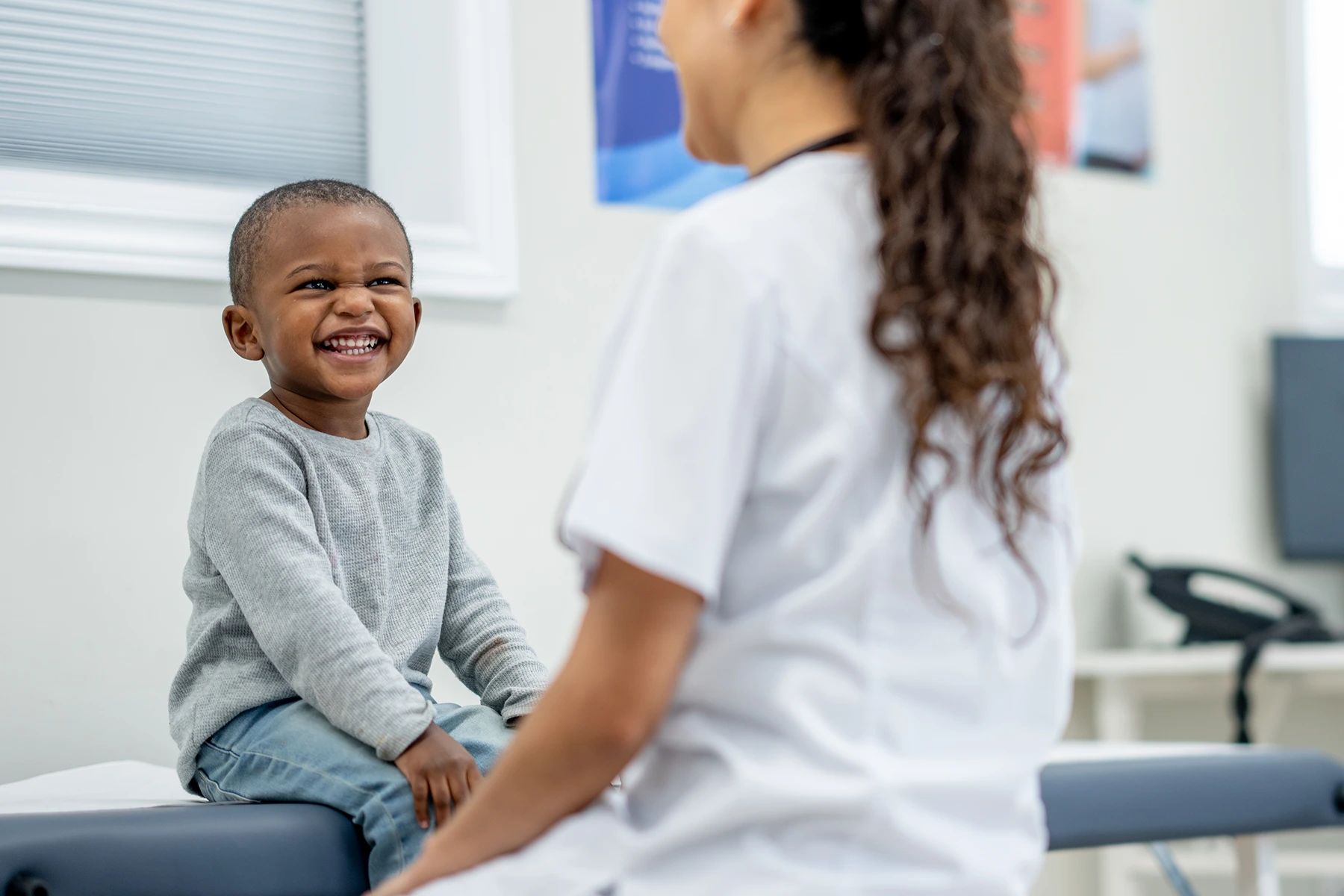Vaccine Safety: A Parent’s Guide

Does your child fear going to the doctor and getting their shots? Have you ever wondered why vaccines are necessary or why your child needs so many?
Vaccines protect children from infectious diseases. When your child gets their vaccines, their immune system learns to recognize the proteins (called antigens) that are like the germs that can cause serious diseases. This early exposure to antigens through vaccines teaches your child’s immune system to become stronger and more prepared to fight an infection.
Many parents have concerns about the safety of vaccinations. Some decide not to vaccinate. Choosing not to vaccinate your child increases his or her risk of becoming sick. It increases the chance of diseases spreading to vulnerable family members, friends, classmates, and others in your community.
Things to remember when considering vaccinations for your child:
Follow the recommended immunization schedule.
- At specific ages, your child is at higher risk of becoming sick from certain diseases. The recommended schedule was created and is reviewed yearly by pediatricians and scientists to provide your child with the most protection.
It is safe to give more than one vaccine at the same time.
- Children are exposed to 2,000 to 6,000 antigens daily in their day-to-day lives. The entire recommended immunization schedule contains fewer antigens than that.
Infectious diseases are more common than it may seem.
- Some parents believe their children do not need to be vaccinated against rare diseases. However, the measles outbreak this year showed that rare diseases can become more dangerous if children do not continue to receive protection against them. So far in 2024, there have been multiple measles outbreaks in the United States. Most of these cases happen in children and people who are unvaccinated.
It’s okay to give vaccines to those with a mild illness.
- If you are nervous about giving your child vaccines when they are sick, talk to your pediatrician for more information. If your child has a common cold, low-grade fever, earache, or diarrhea, it is usually safe to get vaccinated.
Vaccines are safe.
- Vaccines are made with either dead or extremely weakened versions of germs, which prevents your child from being infected. If your child has a weaker immune system from certain medications or medical conditions, there may be a small risk of your child getting sick from a vaccine. Talk with your pediatrician to determine if this risk applies to your child and if there is a different form of vaccine that would be better for them.
Side effects are usually very mild.
- Your child may get a low-grade fever and body aches for about a day as their immune system is getting stronger. If you are concerned that your child is experiencing a more serious reaction or side effect, discuss your concerns with your pediatrician.
Vaccines do not cause autism.
- Children with autism begin to show signs by one or two years old, which is also when many recommended vaccines are given. These two events happen within a similar timeframe, but it does not mean that vaccines cause autism.
The ingredients in vaccines are safe.
- Some parents believe vaccines contain harmful chemicals. Vaccines only contain ingredients that are needed to strengthen your child’s immune system. Vaccines contain pieces of weakened or dead germs that cannot infect your child. Vaccines also contain ingredients to help your child’s immune system recognize the vaccine, which allows a lower dose to be given to your child.
If you are hesitant about vaccinating your child, discuss your concerns with your pediatrician. They are aware of your child’s unique medical history and any potential health risks. They can provide their expert knowledge and advice on how to keep your child safe and healthy. For general information about vaccine safety, visit Vaccine Safety: Get the Facts – HealthyChildren.org.
For information on injury prevention, visit www.healthychildren.org or contact the Injury Free Coalition for Kids of Miami, a program supported by The Children’s Trust, at 305-243-9080 or online at www.injuryfree.org.
Written by Lauren M. Rouse, M.D., M.P.H. candidate with Julia Belkowitz, M.D., M.P.H., Lyse Deus, M.Ed, and Oneith Cadiz, M.D.
References
Achievements in Public Health, 1900-1999 Impact of Vaccines Universally Recommended for Children — United States, 1990-1998. Read more
All About the Recommended Immunization Schedules. Read more
An Important Immunization Message from the AAP. Read more
How Vaccines for Children & Teens Work. Read more
Measles Cases and Outbreaks. Read more
What’s in Vaccines? Read more
Tags: child care in Miami, Dr. Julie Belkowitz, Dr. Oneith Cadiz, healthy children, parenting tips, vaccine
